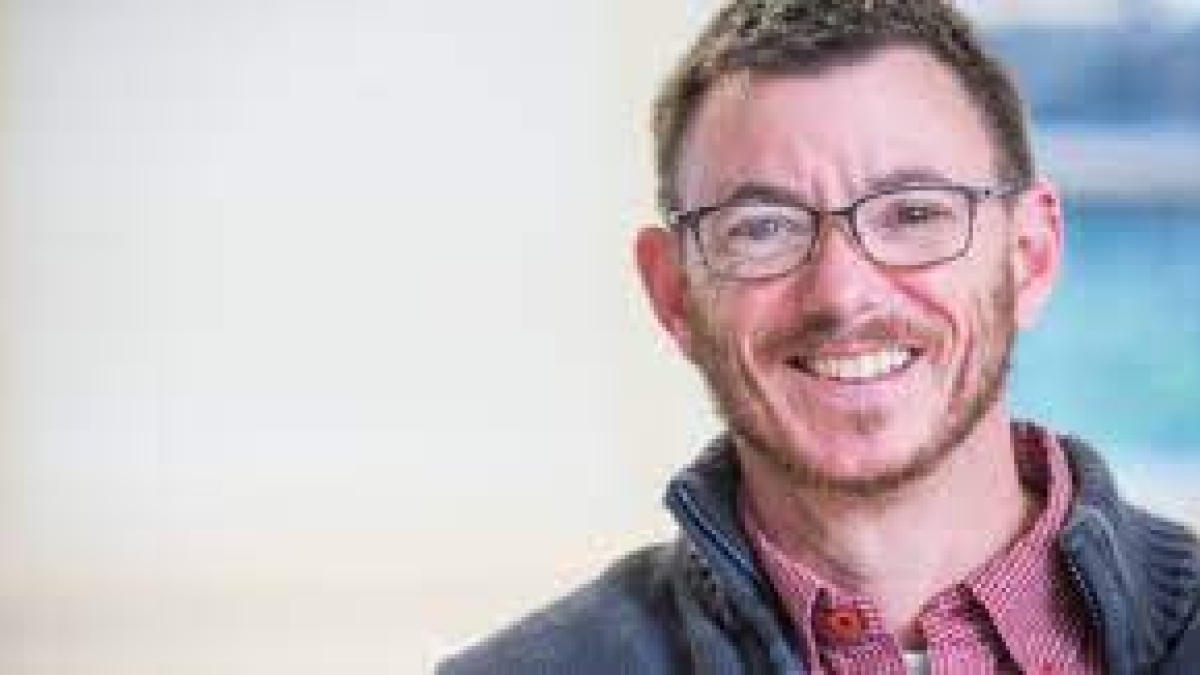Philosophy alumnus publishes book on the politicization of transgender identities

Loren Cannon earned his PhD in philosophy from ASU in 2006.
Loren Cannon attended Arizona State University from 2000 until 2006, when he graduated with his PhD in philosophy. Cannon is now a lecturer at Humboldt State University in Arcata, California, and published his debut book last month.
The book, titled "The Politicization of Trans Identity: An Analysis of Backlash, Scapegoating, and Dog-Whistling from Obergefell to Bostock," presents evidence and argues how the transgender identity was further politicized after the 2015 Supreme Court case Obergefell v. Hodges, in which the court ruled that same-sex couples had the fundemental right to marry. He also discusses this politicization in light of the 2020 Supreme Court case Bostock v. Clayton County, where it was ruled that Title VII of the Civil Rights Act of 1964 extended protections to include sexual orientation and gender identity.
“I was teaching the first-ever funded class at my university on the topic of trans theory, called ‘Trans Lives and Theory,’ and was first funded in the spring semester of 2016,” Cannon said. “It became increasingly clear that legislation was being proposed across the nation that specifically targeted transgender and gender non-binary persons.
“As a transgender man and also a philosopher, I felt the need to both pay attention to what was happening and respond,” he said. “My specialization is in applied ethics and social philosophy, so it is with this kind of perspective that I employed in my analysis.”
He was surprised by the rapidity with which the anti-transgender sentiment took hold across the nation and by how seemingly few people were engaging with the topic through moral or social analysis.
“The proposed legislation: barring individuals from using public restrooms, from adopting children, from receiving adequate health care, to being able to use gendered facilities, to changing their name, are all non-trivial harms,” Cannon said. “This politicization acts as a barrier to meaningful social participation and is unjustified and has broad negative implications.”
In conducting research, Cannon found the intersectional analysis as a key component to revealing how anti-trans hostility can be used as a tool to uphold other marginalizing systems such as racism and sexism.
“Interlocking and reinforcing systems of oppressions will continue to reproduce each other unless we recognize these interrelationships and respond accordingly,” Cannon said.
Although philosophy was not always an explicit interest for Cannon, journals from when he was young are filled with philosophical musings. But as a first-generation college student he didn’t know how to include philosophy in his life and earned his bachelor’s degree in mathematics.
“I came to philosophy as a kind of second career,” Cannon said. “I had been teaching mathematics in the Maricopa Community College system before attending ASU. Specifically, I worked at Estrella Mountain Community College from about 1993–2000. I received my master’s in theoretical mathematics at Northern Arizona University in 1992.”
It wasn’t until his mid-30s when he started to formally study philosophy. The doctoral program for philosophy was brand new when he enrolled, and he was among the first to graduate with a PhD in philosophy from ASU.
“I found the ASU philosophy department to be very supportive towards individuals and also in nurturing a community of inquiry generally,” Cannon said. “Many professors made a big impact on me while at ASU, including especially Dr. Shari Collins, Dr. Joan McGregor, Dr. Peter French, Dr. Jeffrie Murphy, Dr. Michael White and Dr. Margaret Walker.”
Cannon moved to the far north coast of California after graduating and continues to live there now. He specializes in trans-theory, feminist ethics, applied ethics, ethical theory and metaethics.
He has published on the topics of trans-theory, feminist ethics and collective responibility and collective belief. For those interested in similar topics, he urges the importance of writing, even if the end result is unknown.
“It is so easy to assume defeat before even getting started,” Cannon said. “Researching and writing is a specific kind of practice, one I think should be approached with both integrity and humility.”
More Law, journalism and politics

ASU committed to advancing free speech
A core pillar of democracy and our concept as a nation has always been freedom — that includes freedom of speech. But what does…

ASU experts share insights on gender equality across the globe
International Women’s Day has its roots in the American labor movement. In 1908, 15,000 women in New York City marched to protest…

ASU Law to offer its JD part time and online, addressing critical legal shortages and public service
The Sandra Day O’Connor College of Law at Arizona State University, ranked 15th among the nation’s top public law schools,…

